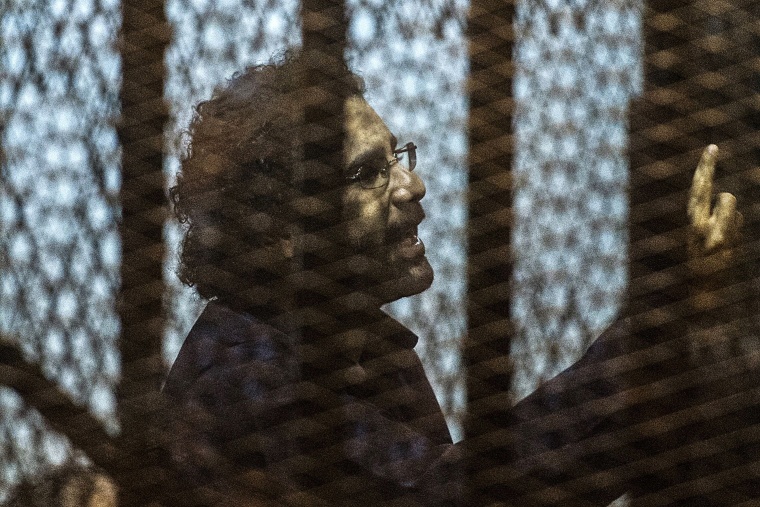Egyptian prison authorities have intervened medically with jailed pro-democracy activist Alaa Abdel-Fattah, who this week escalated a food and hunger strike demanding his release, coinciding with Egypt’s hosting of the U.N. climate summit, his mother said.
The nature of the intervention was not known, but the family has expressed fears prison officials would force-feed Abdel-Fattah, which they said would amount to torture. Abdel-Fattah said in an earlier letter that he was prepared to die in prison if not freed.
Abdel-Fattah’s mother, Leila Soueif, said she spoke to prison authorities by phone and asked them if her son was undergoing any medical procedure and they said he was. She asked “if it was by force, and they said no” and told her, “Alaa is good,” she told The Associated Press.
Soueif called for him to be transferred to a civilian hospital rather than a prison facility. “I need proof for this. I don’t trust them,” she said. Soueif has been waiting outside the prison every day this week, asking for proof of life for her son.
Abdel-Fattah, who has been in prison for most of the past decade, is serving a five-year sentence on charges of disseminating false news for retweeting a report in 2019 that another prisoner died in custody.

He had been on a partial hunger strike of 100 calories a day for the past six months. He stopped all calorie intake and began refusing water on Sunday, the first day of the world climate summit held at the Egyptian Red Sea resort town of Sharm el-Sheikh.
Egypt’s hosting of the event has drawn intensified international attention to heavy suppression of speech and political activity. Since 2013, President Abdel Fattah el-Sissi’s government has cracked down on dissidents and critics.
World leaders and activists have repeatedly called for Egyptian authorities to release the activist.
Abdel-Fattah rose to fame during the 2011 pro-democracy uprisings that swept through the Middle East, toppling Egypt’s long-time President Hosni Mubarak. His long imprisonment since 2011 became a symbol of Egypt’s sliding back to autocratic rule under el-Sissi.